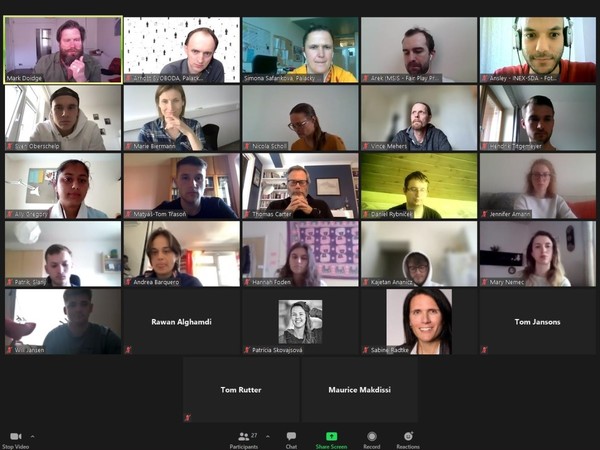Sport not only strengthens the body and spirit, but can also play an important role in social and cultural development or in solving serious social problems. The three-year Global Sport for Development and Peace Knowledge Collaborative (GloKnoCo) project, in which the Department of Development & Environmental Studies of the Faculty of Science together with the Faculty of Physical Culture is involved, aims to point out this hitherto seldom used potential of sports activities.
“We want to show students how to work with topics such as poverty, ecology, social exclusion, diseases and humanitarian disasters through sport. The project takes advantage of the fact that both children and adults enjoy movement and playing sports. With the help of sports activities, they can learn more about these topics under the guidance of instructors. While sometimes participation itself is a partial solution to a problem, it gets children ‘off the street’, other times participants may still be learning solutions in movement games. Sport thus contributes to social change in society,” said Simona Šafaříková from the Department of Development & Environmental Studies.
Selected students get acquainted with the issue from a theoretical point of view and then also in practical workshops. In international teams, they design fictitious sports development projects led by non-profit organisations. This year’s conference, which took place online due to the coronavirus pandemic, was also attended by Daniel Rybníček from the Department of Development & Environmental Studies. “Participation in the GloKnoCo project brought me a lot of new knowledge and experience. It was very interesting to see experts from Palacký University and foreign universities, as well as representatives of non-profit organizations, use sport to develop and fulfil the agenda of the Sustainable Development Goals and reduce inequality within and between countries. We were introduced to specific examples from around the world as well as specific tools that organisations use to solve given problems. The seminars were accompanied by interesting and creative group activities, where we tried to create new scenarios and projects that could be applied in the practice of sports for development,” explained the student.
In addition to Palacký University, project partners are the University of Brighton (GB) and Paderborn University (D), as well as several organisations active in the field of sports for development. “Last but not least, within the project we strive for rapprochement and cooperation between the academic and non-profit sectors. In other words, researchers at universities have a lot of data and general information on sports and development issues, while non-profit organisations work in the field and put specific projects into practice. The connection of these two groups and the mutual sharing of information and experience is far from a matter of course. We would like to start and further strengthen this debate within the project,” added the main project manager at UP, Arnošt Svoboda from FPC.
More information about the project can be found here.
